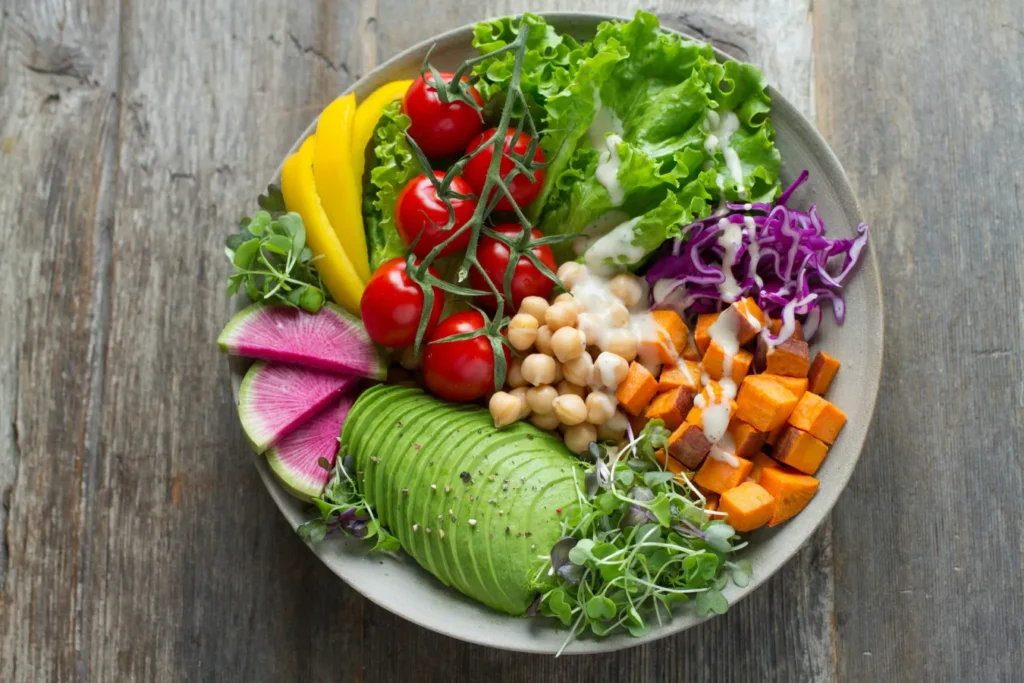Fruits and vegetables, which provide valuable fiber, are a step on the right path to controlling cholesterol, blood pressure, blood glucose, and overall weight. However, if a person is not used to consuming foods rich in fiber, they should do so gradually to prevent bloating and abdominal pain.
The amount of fiber each person needs is based on age. Generally, men up to age 50 should consume 38 grams of fiber per day, while women of the same age should consume 25 grams per day. As age increases, fiber intake is recommended to decrease. Starting at age 51, men should consume 30 grams per day and women 21 grams per day.
Also, it should be noted that some foods and drinks can increase digestive discomfort. Try to avoid some of them to continue your path to a more nutritious lifestyle.
Beware of fruits with high fructose content.
Many people avoid eating fruit because it contains sugar, such as fructose and sorbitol, which can cause bloating and gas. However, fruit contains fiber, which is an important part of a healthy diet, and beneficial vitamins and minerals.
Avoid high-fructose fruits, such as apples, pears, and watermelon. Instead, eat bananas, oranges, cantaloupes, and darker-colored fruits, such as blackberries, blueberries, and strawberries, which contain important antioxidants.
Beans and lentils
Beans and lentils are a great source of protein and fiber, but they also contain complex sugars called oligosaccharides, which cause bloating and gas as they pass through the digestive system.
To reduce the amount of sugar, always rinse canned beans and make sure they are thoroughly cooked. Cooking beans until they are very soft helps reduce gas production.
Cruciferous vegetables
Broccoli, cauliflower, Brussels sprouts, and cabbage are some of the most difficult foods to digest because they contain complex fibers, which tend to ferment in the gut, causing gas and bloating.
Other nutrient-dense foods that are easier to digest include dark green leafy vegetables, such as kale, spinach, and Swiss chard.
Onions and garlic
Many varieties of the Allium genus, such as red onions, yellow onions, and garlic, can be difficult to digest. This is because they contain a substance called fructan, which can ferment in the gut and cause nausea, bloating, gas, and diarrhea.
To reduce sensitivity to these vegetables, cook them thoroughly or soak them in water for at least 15 minutes if consumed raw.
You can also consume these foods in powder form, although in some people the effect is the same. If you want to enhance the flavor of your meals, try other foods such as celery, fennel, or chives. You can also add other spices and aromatic plants such as basil, ginger, and oregano to give depth to your meals without fearing digestive problems.
With a few modifications, you can alleviate the swelling and discomfort you are currently feeling. Here are more tips:
- Eat smaller meals more frequently. Instead of eating large meals, choose smaller portions more times throughout the day. This way, your digestive system can process food more efficiently, which reduces your chances of bloating.
- Eat slowly. Taking the time to chew your food thoroughly and break it down in your mouth helps digestion and reduces stomach strain. This also prevents overeating, which can put unnecessary strain on your digestive system and cause more bloating.
- Stay hydrated. Make sure you drink enough water each day to support healthy digestion. Staying well hydrated helps food move smoothly through the digestive tract.
- Avoid carbonated drinks. Sodas and other carbonated beverages introduce excessive amounts of air into the digestive system, leading to more bloating and gas. Instead, drink still water or try drinking mint, chamomile, or ginger tea after meals, as this can aid digestion and soothe the gut.
- Keep a daily record of what you eat. As you make changes to your diet, consider keeping track of what you eat and how you feel afterward in a journal. This practice will help you identify specific foods that cause discomfort and allow you to make further modifications to feel better.
Hopefully, with small changes, you can continue to enjoy your new diet without unpleasant side effects. Fiber has many benefits, including improving gut health over time. However, if you still have bloating, gas, or other abdominal discomfort, check with your primary care specialist to rule out food allergies or other conditions.

